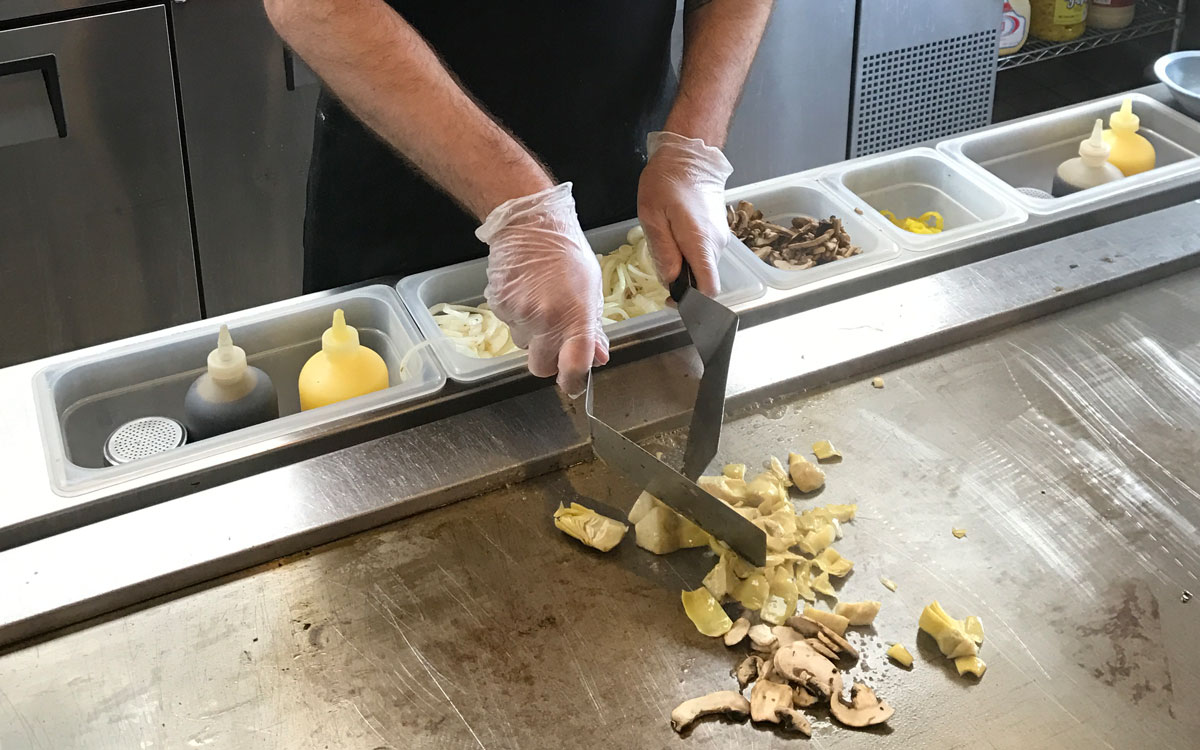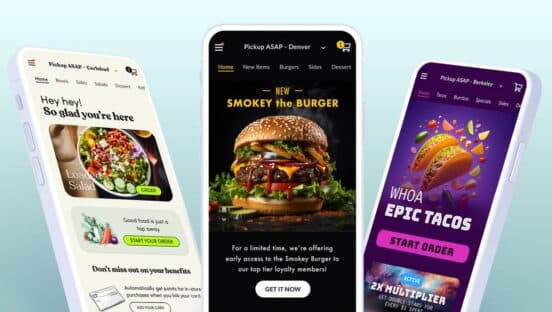A point of sale (POS) system is crucial to the operations for restaurants. If you’ve investigated off-the-shelf options, you know they often require you adapt your operational flow to conform to their software. Creating a custom POS system might not be as expensive as you think, and it also allows you to tailor the software to your business model and develop tools personalized for your restaurants. Whichever choice you make, your POS system will have long-term ramifications to your restaurant, so make sure you consider that and don’t focus on the short term.
When to Use a Custom POS System
There is no universal time for when a restaurant chain should transition to a customized POS system. Some concepts may find that after as few as a dozen locations they need personalized features, while others may have many more locations before they find the need to customize their POS system. For example, Penn Station East Coast Subs built its custom POS system in 2004 with only 131 locations. As a rule, when the system you are using does not give you the necessary tools or data to make informed business decisions or if the system cannot be adapted to fit your operational needs as your business grows, it’s time to look into building a custom solution.
Since a custom POS system is almost universally more expensive than using existing software, some restaurants may not be willing or able to spend the extra money. Some software providers can partially customize their products. If you can find a solution that meets 80 percent of your needs and can adapt the rest of the way, that can be a cost saver. If you’re on a time crunch and need a POS system quickly, custom software probably is not for you. The development phase takes several weeks to months.
Choosing a Vendor
Most restaurant chains do not have an in-house software development team, so finding a third-party vendor is the first step in creating a custom POS system. It’s important to look for a company with experience in building POS systems, preferably for restaurants. POS systems hold a lot of valuable data, so you need a vendor that understands data security and PCI compliance and can ensure that your data and your customers’ data will be protected.
Choosing a vendor is like choosing an employee—you want a team that fits with your company culture and sees your vision. Look for a company that will be honest with you, too. Even when you build completely custom software, some features may be impossible to complete within your budget. You need a vendor that will tell you that and help you find an alternative. Price should be a factor because you want to keep costs down for franchisees, but make sure you choose a reputable vendor that will be able to deliver a usable final product that is better for your restaurants than existing off-the-shelf options.
You also need to ensure that your vendor will be around to help support you in three to five years—and have a contingency plan if they’re not. Documentation of the source code and how the software functions is critical. You can hire a third party who documents and reviews the software annually to ensure it is functioning as intended. Doing so prepares your business should you have to find someone else to make systemic changes if your previous vendor partner falls out of favor
Features to Include
Always begin with the end in mind: A custom POS system should works as a guide to running your restaurant. It should flow the same way your operations flow, so that it is intuitive to order entry and order close for your products sold. Once that is complete, you can choose additional features. Custom POS systems can track inventory, limit theft and provide custom reporting. Once you get your basic features set, you can even add modules to track food costs or integrate your training process and scheduling.
Your franchisees may only use 50 to 70 percent of the features in an off-the-shelf POS system, and we’ve found the selling point from some off-the-shelf providers add unnecessary software costs, because the data, while interesting, does nothing more than inundate operators with useless information. Creating a custom POS system allows you to choose the most important features and leave less distractions for operators who do not need an overwhelming amount of unnecessary data. For example, make sure your reporting features line up with your restaurants’ needs. Choose the exact parts of your business that you want franchisees or managers to track and monitor, which should help general managers set and achieve goals.
A custom POS system also allows you to make changes to your POS system as your restaurant grows. For example, when Penn Station added online ordering, we were able to connect our mobile app and website to the POS system to take orders. Our POS system was designed with the ability to make changes, so the update was relatively painless.
When you buy a POS system off the shelf, you may have to change how you put your product together to fit your POS system. A custom POS system allows you to create software that helps you improve speed of sales, cash control and inventory issues. Custom software gives you a competitive advantage over other restaurants, and it should pay for itself over time.







